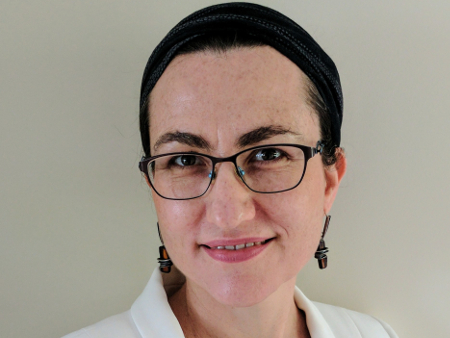E-learning modules help doctor prepare for life in remote communities
 Most health professionals do what they do because of an intrinsic desire to provide compassionate and professional care to those in need.
Most health professionals do what they do because of an intrinsic desire to provide compassionate and professional care to those in need.
But providing professional health care isn’t just about wanting to do the right thing; it takes years of studying, hard work and dedication. It’s a journey that includes keeping up with the latest advances in medicine, technology, care management and treatment options. It’s important for anyone interested in staying current to be on the lookout for new avenues of learning and knowledge.
Dr Kirsten Due is a GP who, for the past 13 years, has worked in and developed medical knowledge in rural and country Australia. To prepare her for work in the remote communities of Elcho Island, Maningrida and Lajamanu, Dr Due recently completed some of RHDAustralia’s free e-learning modules on acute rheumatic fever (ARF) and rheumatic heart disease (RHD). We were eager to hear about her experience with the modules and what motivated her to move from, as she puts it “a fairly happy, fairly easy life in suburbia, in a nice leafy rural community.”
What did you think of the modules and do you think it’s helped prepare you to deal with cases of ARF and RHD?
I was delighted to find your modules; it was exactly what I needed. They are exceptionally well put together and I can’t believe they’re free! They cover just about everything I would need to know from a good introduction, to epidemiology, risk factors, presentation of symptoms and treatments. I think it covers everything you'd need to know.
I now feel like I’m really equipped to start working in the communities. I was so impressed I sent an email to the Australian College of Rural and Remote Medicine (ACRRM) recommending it as an essential resource for ACRRM members. Until I came across the e-learning modules, I was struggling to find appropriate resources to prepare me.
Have you had previous clinical experience with ARF and RHD?
When I was training to become a GP, I spent a couple of years in Darwin. We had access to some excellent paediatricians who really drummed it into us to always be on the lookout for ARF and RHD.
I’ve also been personally affected by the disease. My sister-in-law, who’s Caucasian, suffered from rheumatic fever. The consequences of that resulted in a stroke because of an embolization to the brain following infective carditis. And I have an aunt and a cousin who are Indigenous, so I feel a connection with that cohort who are most at risk.
Unfortunately, for my sister, it was a missed diagnosis and she only discovered she had ARF after her stroke. It’s a constant reminder that even in an area that you don’t think of, you need to be aware of these things.
"It’s one of these diseases you have to have a high threshold of suspicion for, or at least have in the back of your mind even when you’re working in non-remote areas and then always suspect until proven otherwise when you’re working in Indigenous communities."
So what brought about your decision to move from Grafton, NSW to the Top End.
I think everybody comes to a point where you just want to make a contribution to the community, to enhance what it means to be human. For me it’s a great privilege to be able to go out to community and help.
I was also worried about becoming too narrowly focused on any one aspect of my general practice. I thought if I stayed too narrow for too long, then it would be difficult to get out of that. So I was looking for a bit of a change and I always had a heart for the bush and working in Aboriginal communities.
Are there any takeaway messages you want to share?
As I was listening to one of the introductory chapters in the modules, they were describing how ARF/RHD was a socio-political problem and that it is entirely preventable. I found that quite challenging, surprising, and shocking in a way. There are a lot of other conditions, such as malaria that get more of a public presence, but ARF and RHD don’t seem to have that level of awareness. I think it’s something you could easily become quite disheartened about. As a marker of the overall health of the community, I think ARF and RHD are important conditions to be aware of.
I’d like to share a mnemonic poem I made up a while back to remember the major criteria::
Chorea, carditis and polyarthritis
make skin-redness and nodules a major crisis.
